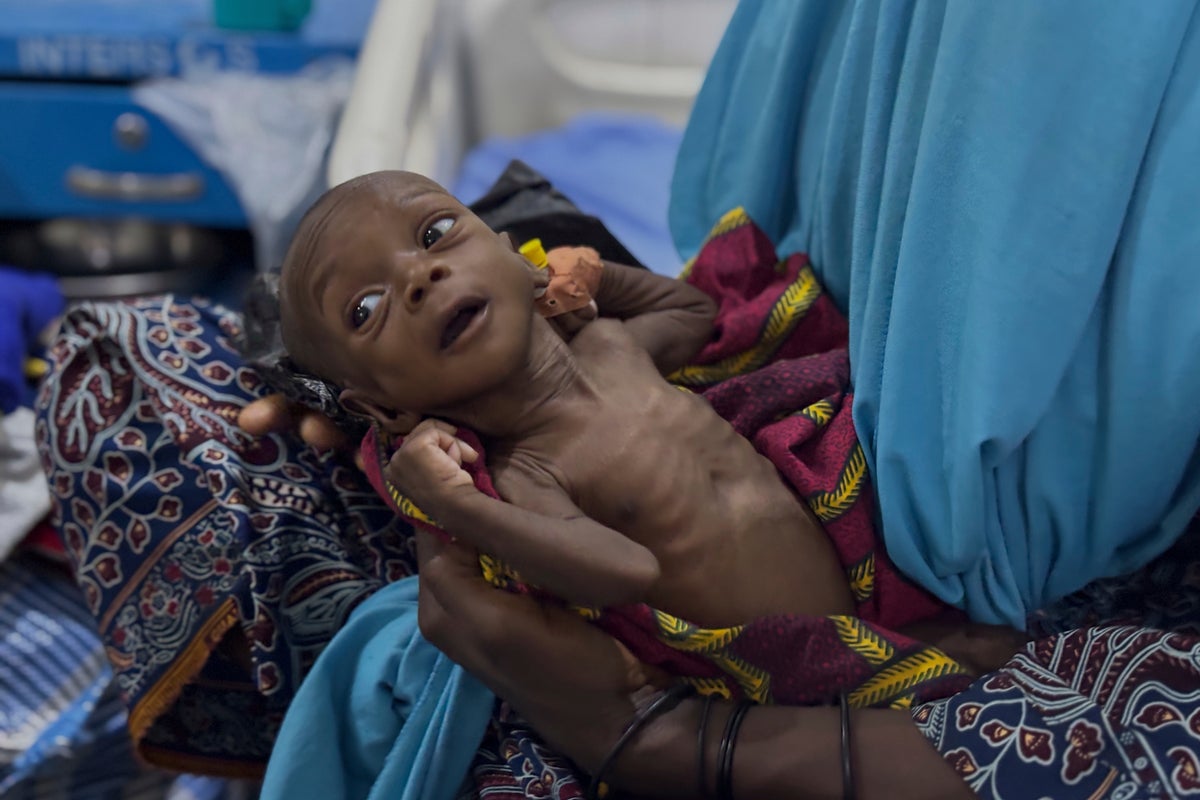
A serious lack of effective early warning systems is leaving countries vulnerable to climate-induced hunger, according to new research published by one of the world’s leading think tanks.
Early-warning systems are key to responding to disasters – including, for example, via text message or radio alert – as well as planning. With climate change driving ever more extreme weather events, these systems are expected to play an ever more important role.
The new research by Chatham House, which has been shared exclusively with The Independent, finds that food security is not being sufficiently factored into these systems, posing a major threat to vulnerable communities across the world.
Dealing with the problem should be seen as critical, given the “never-before-experienced blend of risks to global food security” that has resulted from a combination of high temperature records, recurring extreme weather, increasing conflict and trade disruptions, the authors write.
The research comes after a key global food security report found in July that 8.2 per cent of the world’s population, or some 673 million people, experienced hunger in 2024. Meanwhile, the number of people in “food crisis” has tripled since 2016.
The effects of the global food crisis are felt particularly hard in Africa, where 20 per cent of people, or some 307 million people, faced hunger last year.
The knock-on effects of events such as Russia’s invasion of Ukraine, which disrupted the availability and affordability of food far beyond the war zone, driving record high prices in some of the world’s poorest countries. But systems are not effectively in place to deal with such far-reaching effects.
Droughts also regularly do not have well-designed responses, in comparison to more immediate crises like floods, the researchers say.
In Bangladesh, the authors highlight that while increasingly destructive annual monsoon seasons are being documented, the information that farming communities receive tends to be patchy, with little information on how extreme weather patterns might impact their harvest patterns or the salinity of their soils.
In Senegal, around a quarter of people are believed to be food insecure, with households typically spending more than 50 per cent of their income on food. Hazards faced by farming communities include drought, wildfires and locusts – but current national early-warning systems are not sufficiently capturing either the triggers or the impacts of these events, the authors warn.
“The global risk landscape is increasingly complicated, because of both increasing environmental threats, and how threats are interacting with one another – but the food security element tends to be an afterthought,” report author Richard King told The Independent.
“The way that risks are propagating and affecting people is starting to develop in slightly unforeseen ways and with greater frequency, and the current early warning system landscape is not well equipped to deal with it.”
Even before more complicated monitoring and responses to food shocks are accounted for, the world is severely lacking in effective early warning systems.
UN data finds that only 108 countries – or 55 per cent of the total – have effective “multi-hazard early warning systems” capable of responding comprehensively to extreme events and their aftermath.
When food crises are more effectively managed, it can make a huge impact. The UN’s World Food Programme (WFP), for example, has a programme it calls “anticipatory action,” which has become a core part of how it approaches climate-driven food shocks. First launched in 2015, it is now operational in 24 countries across Asia, Africa, Latin America and the Caribbean – with the idea being that you support people to stay put in their communities, rather than see them forced to leave and seek food aid.
In Ethiopia, for example, during the rainy season of February to May this year, around one million people received early warning messages and 150,000 people received cash transfers to support them in the event of livestock losses in the drought-prone Somali and Oromia regions. They are some of the estimated 19 million Ethiopians who live such areas.
“We respond to droughts, floods and cyclones, providing early warning systems, financial support, and land management advice in the days, weeks and sometimes even months ahead of the climate shock, based on the predictability of the information that we have,” says WFP’s Robert Ackatia-Armah.
“The idea is that we cannot prevent the shock from happening, but we can prevent the humanitarian cost and caseload by intervening in advance.”
The Independent has previously profiled recipients of the programme, who described its transformative impact.
This article was produced as part of The Independent’s Rethinking Global Aid project
